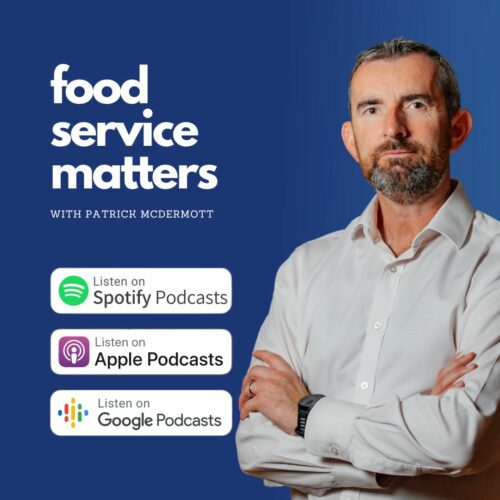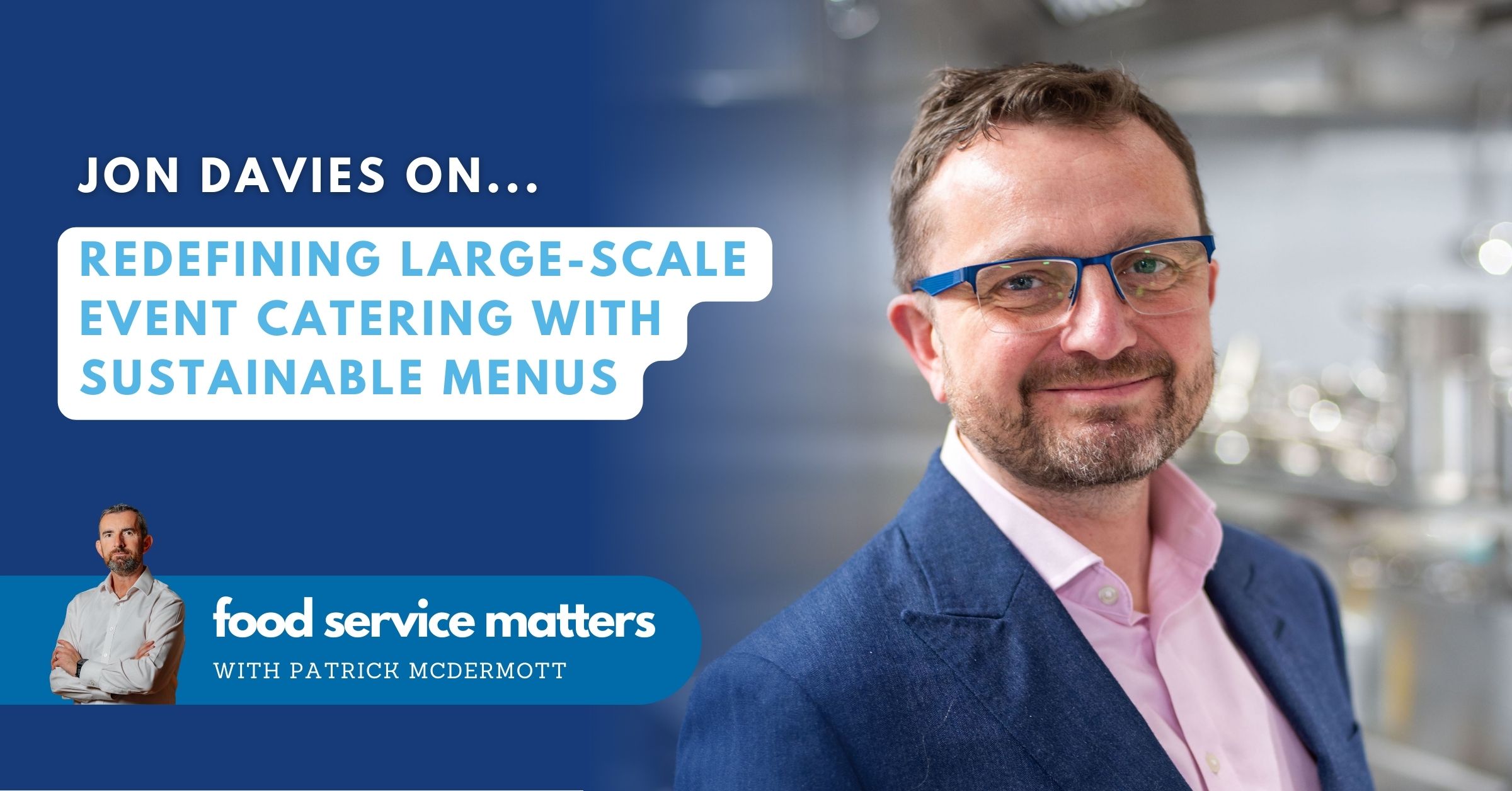When it comes to large-scale event catering, sustainability often takes a back seat to convenience, cost and customer cravings. But some industry leaders are pioneering a new approach: bringing sustainability to the forefront through smarter sourcing and innovative menus.
In Season Two, Episode Three of the Food Service Matters podcast, host Patrick McDermott talks to Jon Davies, Managing Director of Levy UK & Ireland, a division of Compass Group that provides large-scale, customised food service solutions for major sports venues, entertainment arenas, events and conferences.
Here, we share the innovative ways in which Jon and his team have enhanced sustainability throughout Levy’s event catering operations.
Increasing Sustainability in the Supply Chain
Knowing exactly where your ingredients are being sourced from and the carbon footprint they leave behind is the first step towards sustainability.
Jon found that, at the start of Levy’s journey, “there were chefs buying strawberries in December or asparagus out of season from Peru for sporting events,” which had to change.
The Levy team analysed their supply chains, prioritising local, low-emission suppliers and aiming for a net-zero carbon commitment by 2027. “We’ve banned air freight, for example,” Jon says, highlighting that actions like these greatly reduce a company’s environmental impact.
Creating Smarter Menus for Event Catering
Clever menu engineering is another core sustainability strategy at Levy.
Jon gives the example of catering for large-scale sporting events, where fans expect certain dishes like hotdogs and burgers on the menu. Rather than eliminating these firm favourites, Levy chefs get creative by packing plant-based ingredients into beloved dishes. They reassess recipes to reduce meat portions while maintaining the elevated experience clients expect.
“If I can serve an amazing burger that happens to include mushrooms or plant-forward elements and that tastes even better than the traditional burger, it’s beneficial for the planet, as well as people’s health,” Jon explains. This approach embodies Levy’s philosophy: rather than persuading customers to choose the more sustainable menu option, they simply let the food speak for itself.
Letting Flavour Drive Customer Decisions
“Making positive choices on behalf of the customer and delivering what they want, regardless, is key,” Jon says.
By planning menus around flavour first and sustainability second, food service businesses can give guests the tasty, convenient event experience they crave without compromising on eco-friendly values.
“If we’re delivering a delicious chocolate torte that just happens not to have dairy, the customer gets an amazing dish with lower saturated fat content and reduced environmental impact, but we’re not forcing a choice,” Jon stresses.
The success of a business’ sustainability efforts comes down to creating these kinds of win-win situations for the customer. By making eco-friendly menu items the obvious option – and the most delicious – there’s an opportunity to shift behaviour and industry standards.
As companies rethink every aspect of their operations, from sourcing to plating, sustainable eating can be positioned as the norm at large-scale events and venues. With thoughtful planning and unwavering commitment, food service businesses can transform sustainable eating from niche to mainstream, resetting guest expectations around what world-class event catering looks like.
To listen to Patrick’s full interview with Jon Davies, check out the Food Service Matters podcast on Spotify, Apple Podcasts or Google Podcasts.
Patrick is CEO of DigiTally, which is playing an increasingly important role as an intuitive and interconnected simple food service software that helps save time, increase margins and combat food waste. Keen to learn more? Let’s talk! Book a 30-minute call with Patrick and get your demo set up today.




